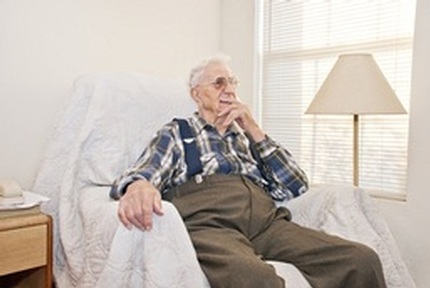Replacing face to face GP appointments with Skype could increase isolation of elderly
The Government’s plan to replace face to face GP appointments with consultations on Skype or iPads could increase the isolation and loneliness felt by the elderly, particularly those who are housebound.

Health minister Dr Dan Poulter spoke about the reforms during a debate at Westminster.
He called on the NHS to ‘better utilise’ modern technology and said: “There are many examples of simple things that can be done, such as having a doctor or nurse talk to a patient on the phone when they call to book an appointment or as an initial assessment. About one third of patients do not necessarily need a face-to-face GP appointment,” he said.
He claims the technological revolution would save the NHS £2.9bn. “We need to harness and better utilise more modern types of technology such as telehealth and mobile technology to support people better in their own homes and to drive down the cost of care,” he added.
Trevor Brocklebank, chief executive for Home Instead Senior Care said: “I applaud the minister for looking at ways to reduce costs but am concerned that he does not bring in measures that would end up costing the NHS more money and introduce unnecessary stress to our older population.
“Speaking on behalf of our older clients I would say that the introduction of new technology to the consultation process (patients being ‘seen’ over a computer screen) might alienate some older people who are not comfortable with new technologies and be impossible for others who don’t have the necessary equipment so this is obviously a concern.
“On the positive side, those with mobility issues might welcome the idea of a consultation at home and the cost-saving aspect will be a real benefit for anyone on a tight budget who would have to use public transport or a taxi to attend an appointment.
“My biggest concern is that a face-to-face appointment is an opportunity for healthcare professionals to engage with their patients and, perhaps, spot a different or bigger problem. The experience of our caregivers tells me that elderly people often play down a health concern that only a friendly chat will draw out of them.”
Andrew Graley, healthcare director at Polycom EMEA, a provider of video conferencing equipment believes that the key to solving the problem is providing adequate training to patients and supplying easy-to-use, intuitive technology.
Mr Graley said: “People like to stick with the familiar, so it’s no surprise that for many of us, the initial reaction is to reject Jeremy Hunt’s initiative. At the same time, telemedicine has already proven to be a key element in improving healthcare and patient treatment. For example, NHS Cumbria & Lancashire’s telestroke service has already saved 26(+) lives since July 2011, and NHS Surrey’s telestroke system has reduced patients’ in hospital time from 30 to three days on average.
“Of course we can’t deny the fact that not everyone is technology savvy, but this shouldn’t hold us back. Those who struggle to use video calling should receive appropriate training, and to be regularly checked upon to ensure they can easily get in touch with a nurse or GP when the need arises. Health authorities also need to make sure that the technology people have to use is easy-to-navigate and delivers quality user experience.”
Latest News
 29-Jul-24
Dementia Bus gives carehome.co.uk staff insight into life with dementia
29-Jul-24
Dementia Bus gives carehome.co.uk staff insight into life with dementia
 27-Jul-23
UK's top home care agencies in 2023 revealed
27-Jul-23
UK's top home care agencies in 2023 revealed
 30-Nov-22
A quarter of older people keep their falls secret from family
30-Nov-22
A quarter of older people keep their falls secret from family
 29-Nov-22
'Covid-19 has not gone away' say terminally ill
29-Nov-22
'Covid-19 has not gone away' say terminally ill
 28-Nov-22
IT consultant who received poor care opens 'compassionate' home care business
28-Nov-22
IT consultant who received poor care opens 'compassionate' home care business